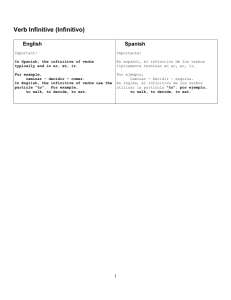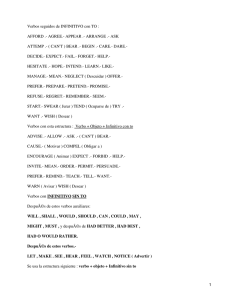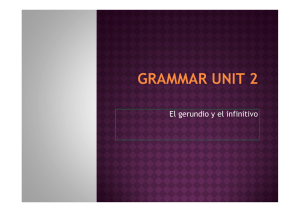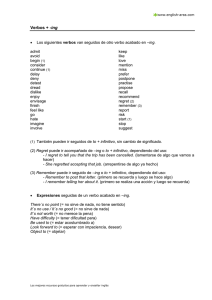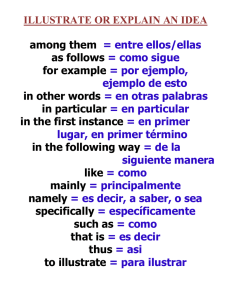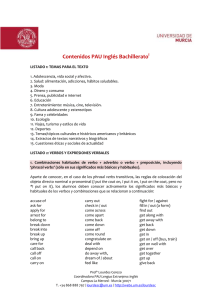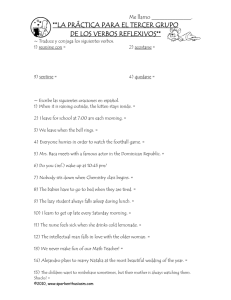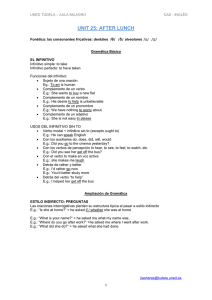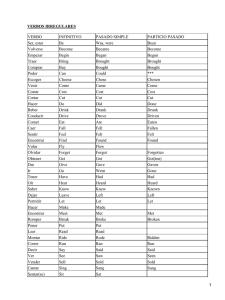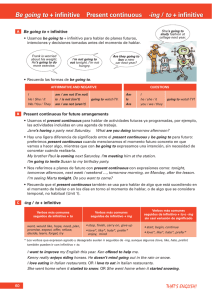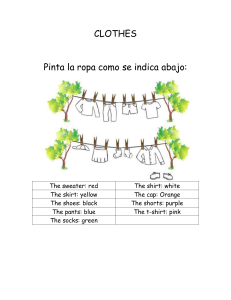El infinitivo: El infinitivo se emplea en los siguientes casos: 1. Como
Anuncio
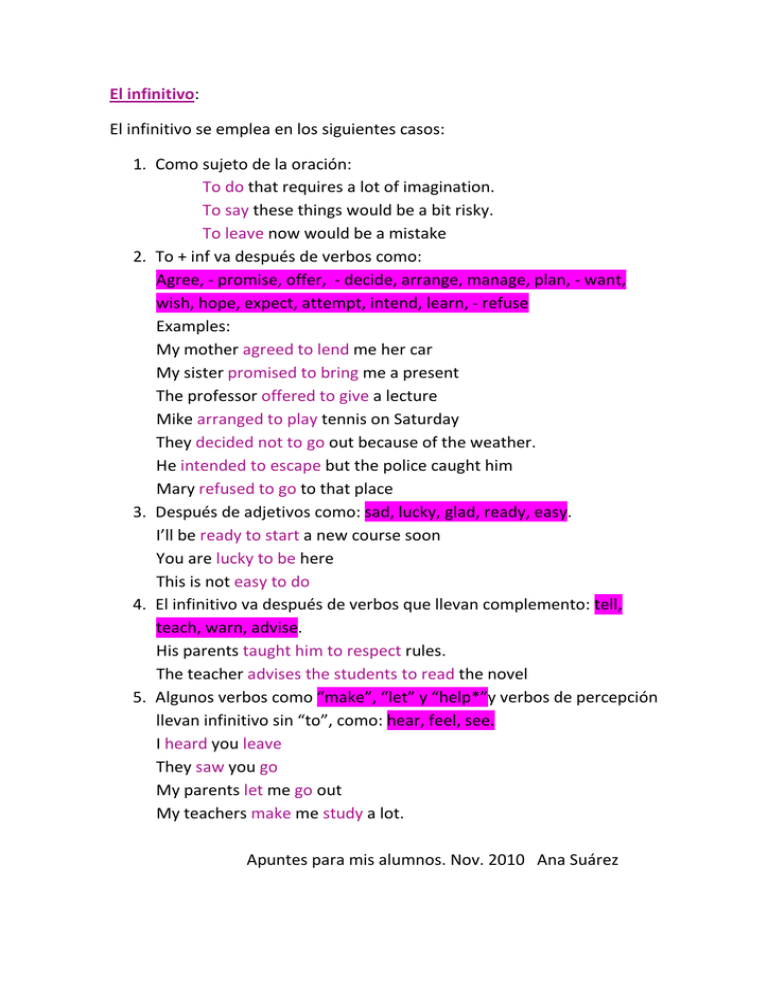
El infinitivo: El infinitivo se emplea en los siguientes casos: 1. Como sujeto de la oración: To do that requires a lot of imagination. To say these things would be a bit risky. To leave now would be a mistake 2. To + inf va después de verbos como: Agree, - promise, offer, - decide, arrange, manage, plan, - want, wish, hope, expect, attempt, intend, learn, - refuse Examples: My mother agreed to lend me her car My sister promised to bring me a present The professor offered to give a lecture Mike arranged to play tennis on Saturday They decided not to go out because of the weather. He intended to escape but the police caught him Mary refused to go to that place 3. Después de adjetivos como: sad, lucky, glad, ready, easy. I’ll be ready to start a new course soon You are lucky to be here This is not easy to do 4. El infinitivo va después de verbos que llevan complemento: tell, teach, warn, advise. His parents taught him to respect rules. The teacher advises the students to read the novel 5. Algunos verbos como “make”, “let” y “help*”y verbos de percepción llevan infinitivo sin “to”, como: hear, feel, see. I heard you leave They saw you go My parents let me go out My teachers make me study a lot. Apuntes para mis alumnos. Nov. 2010 Ana Suárez
